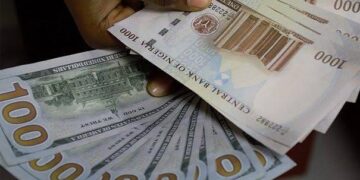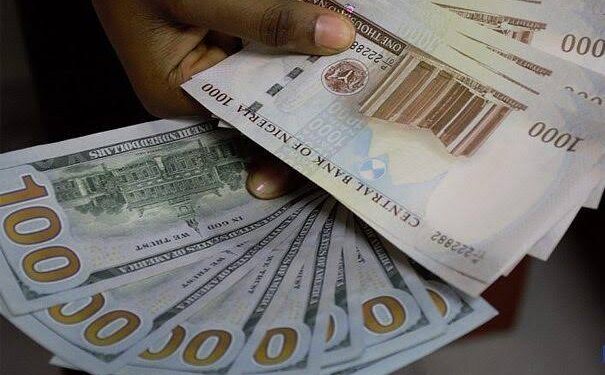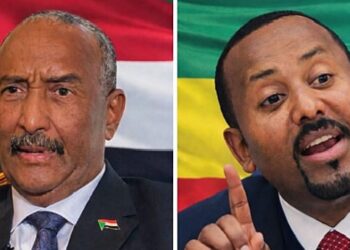The Naira has been stable despite the rioting, blazes and round-the-clock curfews occasioned by #EndSARS protests across major cities of the country, slowing down economic activity and closing businesses.
The local currency traded last week for N463 against the dollar at the parallel market, a ratio which is slightly weaker from the previous week’s N462 exchange rate.
Naira’s exchange rate remains at N379 to the dollar at the official market.
Investors in the equities market also earned N19.7 billion profit as market capitalisation rose to N15 trillion, putting the year-to-date returns at 6.9 per cent.
Commenting on the development, Murega Mungai, the Trading Desk Manager, AZA, global currency dealing leader, said the local currency remains in a risk-averse state, following reports by Amnesty International (AI) that no fewer than 56 people have been killed since the #EndSARS protests began earlier this month.
The Central Bank of Nigeria (CBN) projected that lower oil export revenue and the economic impact from the pandemic would cause external reserves to sink to between $29.9 billion and $34.3 billion by year-end, with the development expected to further add to naira’s pressure.
Although speculative buying has been lower than normal, the anticipation of naira depreciation has led to hoarding of dollars, while demand for forex from manufacturers persists.
The CBN continues to implement measures within its mandate to ensure that it meets forex demand, including the injection of dollar to the Bureaux de Change (BDCs) sector, where a large part of the retail foreign exchange demands are met.
However the apex Bank is likely to see continued pressure on the local currency in coming months.




































